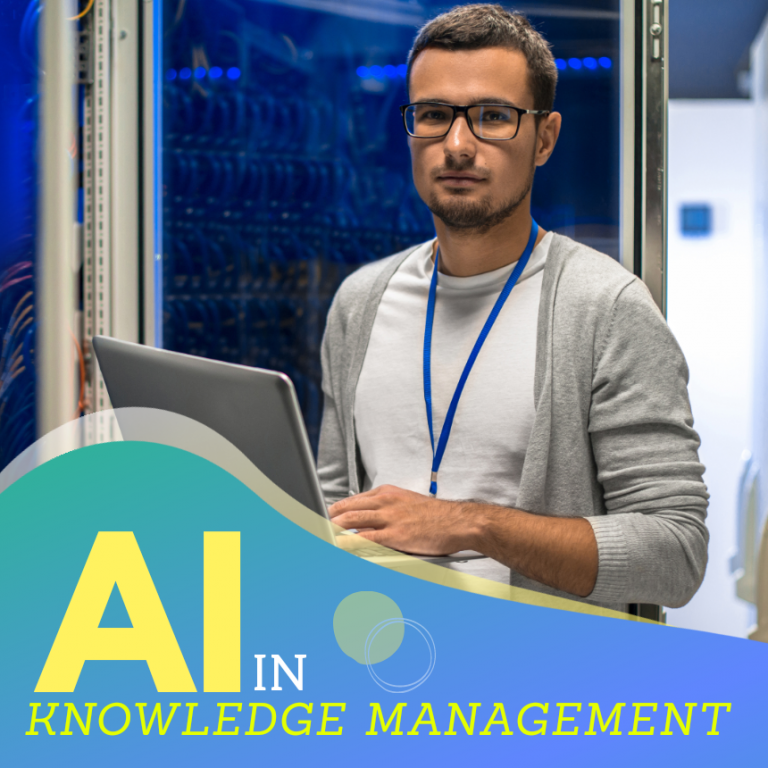
Hello there!
In this article, we will be looking into understanding the crucial role that artificial intelligence plays in knowledge management. There have been countless advancements in AI in knowledge management, which have helped to preserve knowledge effectively among humans. Some would even argue that cave paintings were the first form of publicly accessible knowledge. AI has helped to transform how the knowledge is captured, developed, shared within organizations most effectively.
Related: Inside Artificial Intelligence Revolution – Part 2
What is the role of Artificial Intelligence in Knowledge Management?
AI has been particularly detrimental in technological infrastructure, especially with the application and facilitation of the Decision Support System. DSS is used in applications such as global connectivity and artificial intelligence. The implementation of knowledge management systems is still at a very early stage. Artificial intelligence is capable of addressing many problems associated with that domain.
Artificial intelligence tools can successfully help to provide applications for selecting, parsing, analysis, easy classification of text with automated reasoning and visualizations to facilitate decision making with artificial intelligence to facilitate quick decision making.
Knowledge Management was able to solve some of the problems, which have been perceived critical for its success in the last years. So to say, organisational cultures changed to be more team and collaboration-oriented. Hence, this development also brought up the need for new classes of tools such as collaboration tools. These tools have a huge impact on the present work life and find acceptance among corporations and users alike. By ensuring constant sharing of knowledge and information these tools also seem to be key drivers for knowledge transfer in corporations.
Related: Inside Artificial Intelligence Revolution – Part 1
Further, not only the handling of these tools appears convenient to the user, but also the problem of ill-designed and difficult-to-utilize software seems to be solved by collaboration tools. Taking the major success of some of these tools such as Slack or Hipchat into account, their presence in corporations seems to extinguish traditional knowledge management tools. When looking at collaboration tools, artificial intelligence also seems to take a major role in the future, by creating something termed as collaborative intelligence tools.
Furthermore, the creation of an intelligent enterprise relies on the usage of tools like these, to promote creative thinking, shared memory among groups or business units, interaction, feedback and crowdsourced quality control as well as peer review of the knowledge provided within AI-assisted collaboration tools used for knowledge management. First steps towards this kind of knowledge management are already visible. AI-assisted problem-solving groupware such as GitHub is equipped with asynchronous messaging like threads, E-Mail or forums.
By providing knowledge workers with tools to actively and efficiently collaborate and thereby also creating a huge repository of valuable knowledge, another former pitfall seems to be circumvented. Certainly, it then becomes part of the company culture. As long as the tools help to capture, develop, store, manage and share the provided inputs for the company, knowledge can be facilitated with artificial intelligence and accessed by the user when needed.
Related: The AI Revolution: Our Immortality or Extinction – Part 2
In conclusion:
This is the main role of artificial intelligence with knowledge management. We hope you found this article informative in understanding, the crucial role that artificial intelligence will play in the future. The future of artificial intelligence is very much closely integrated with the management of knowledge data centres in the future.
We hope you found this article informative in understanding the crucial role that AI and artificial intelligence technologies are about to play in the future. Our knowledge centres and the methods that we use to save valuable data, is going to get more complex in the future. Artificial intelligence has implemented various tools and methodologies to solve some of the most common problems faced by human beings.
By taking care of the boring, monotonous and dangerous tasks and leave the creative thinking to human beings, AI will set a way of automating business processes in the future, to be as automated as possible.
Thanks for reading!
Related: The AI Revolution: Our Immortality or Extinction – Part 1



Marie Della Sale
4 years ago